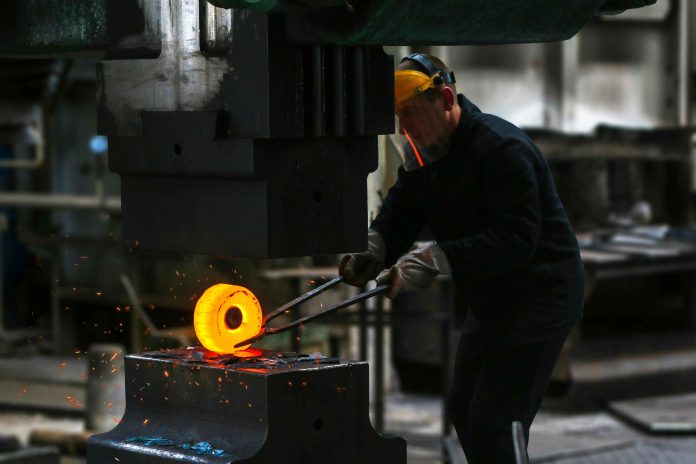This post will show you important things every manufacturing business should do.
Successfully managing a manufacturing company necessitates a keen blend of forward-thinking, productivity, and flexibility.
Such an endeavor involves navigating complex operational hurdles while maintaining a lead in a fiercely competitive global market. Proficient leadership is crucial for orchestrating smooth production processes, streamlining supply chains, and upholding stringent quality measures.
Innovation is a driving force, demanding continuous adaptation to technological advancements and evolving consumer needs. Additionally, comprehending market dynamics and implementing lean manufacturing principles are vital in maximizing productivity and minimizing waste.
These foundational components foster growth and enable consistently delivery of high-quality products that meet customer expectations.
Table of Contents
Grasping Market Dynamics
Understanding the constantly shifting dynamics of the market is fundamental for any manufacturing company. It facilitates efficient resource allocation and meeting consumer demands.
Businesses can accurately forecast demand by closely monitoring trends, consumer behavior, and economic indicators. This insight allows for adjustments in production schedules, inventory management, and product offerings, minimizing risks such as overproduction or shortages.
Utilizing advanced analytics and market research permits companies to identify emerging trends and shifts in customer preferences early on. This proactive approach helps capitalize on opportunities and maintains competitiveness in a rapidly evolving marketplace.
Moreover, informed decision-making based on market insights ensures that strategic initiatives like product launches or expansion are well-timed and aligned with market needs.
Embracing Lean Principles
Embracing lean manufacturing principles is pivotal for enhancing efficiency, reducing waste, and optimizing overall operations. It fosters a culture of employee empowerment and innovation.
Techniques such as value stream mapping, 5S methodology, and continuous improvement (Kaizen) play integral roles in this strategy. Companies can achieve higher productivity and quicker turnaround times by focusing on value-added activities.
This systematic approach enhances operational efficiency and elevates product quality and customer satisfaction. Manufacturers embracing lean principles are better equipped to respond swiftly to market changes while maintaining profitability and sustainability.
Ensuring Quality Assurance
Establishing robust quality assurance protocols is essential to ensure product consistency, reliability, and compliance with regulatory standards.
This involves implementing rigorous inspection processes, adhering to industry benchmarks, and conducting comprehensive testing throughout the manufacturing lifecycle.
Companies can detect and rectify defects early by investing in quality control measures, minimizing rework and customer returns. Maintaining high standards enhances brand reputation and fosters trust and loyalty among customers.
Furthermore, adherence to international quality standards opens doors to global markets, expanding market reach and competitiveness. Continuous improvement in quality assurance practices ensures products consistently meet or exceed customer expectations, reinforcing the company’s reputation as an industry leader.
Utilizing Telescopic Actuators in Manufacturing
Telescopic actuators for manufacturing are fundamental, offering versatile automation and precise control solutions across various applications. These actuators utilize a telescopic mechanism that extends and retracts, providing adjustable motion in linear or rotational movements.
In manufacturing, they are instrumental in assembly lines, robotic arms, adjustable workstations, and material handling systems. Their ability to provide precise positioning, high load-bearing capacity, and smooth operation enhances efficiency and productivity on the production floor.
Telescopic actuators contribute to ergonomic designs by customizing equipment height or reach and optimizing workspace functionality. Moreover, advancements in materials and design have led to actuators that are increasingly durable, efficient, and capable of integrating seamlessly with automated processes.
As manufacturing processes evolve towards greater automation and flexibility, telescopic actuators continue to innovate, supporting the industry in achieving higher levels of efficiency and performance.
Streamlining Supply Chain Management
Efficient supply chain management is critical for ensuring seamless production processes and timely delivery of goods. It encompasses strategic sourcing, effective supplier relationship management, logistics optimization, and meticulous inventory control.
Companies can mitigate supply chain risks and minimize disruptions by cultivating strong partnerships with reliable suppliers and fostering transparent communication. Advanced technology and data analytics enable real-time visibility into supply chain operations, facilitating informed decision-making and agile responses to changing demands.
Collaborative planning, forecasting, and replenishment initiatives enhance supply chain efficiency by aligning production schedules with demand forecasts. Additionally, adopting agile principles and digitizing manual processes streamline communication and coordination among various stakeholders, reducing lead times and enhancing responsiveness.
Continuous evaluation and optimization of supply chain processes empower manufacturers to adapt to dynamic market conditions and customer expectations, ensuring a competitive edge in the industry.
Conclusion
In conclusion, manufacturing companies thrive on a foundation of adaptability, efficiency, and quality.
By embracing market dynamics, lean principles, quality assurance, and advanced technologies such as telescopic actuators, they can achieve sustainable growth and remain at the forefront of innovation.
Streamlining supply chain management further solidifies their position by enabling seamless operations and responsive decision-making. As the manufacturing landscape evolves, these strategic components will continue to shape the industry and drive success for forward-thinking businesses.
INTERESTING POSTS
About the Author:
Chandra Palan is an Indian-born content writer, currently based in Australia with her husband and two kids. She is a passionate writer and has been writing for the past decade, covering topics ranging from technology, cybersecurity, data privacy and more. She currently works as a content writer for SecureBlitz.com, covering the latest cyber threats and trends. With her in-depth knowledge of the industry, she strives to deliver accurate and helpful advice to her readers.







